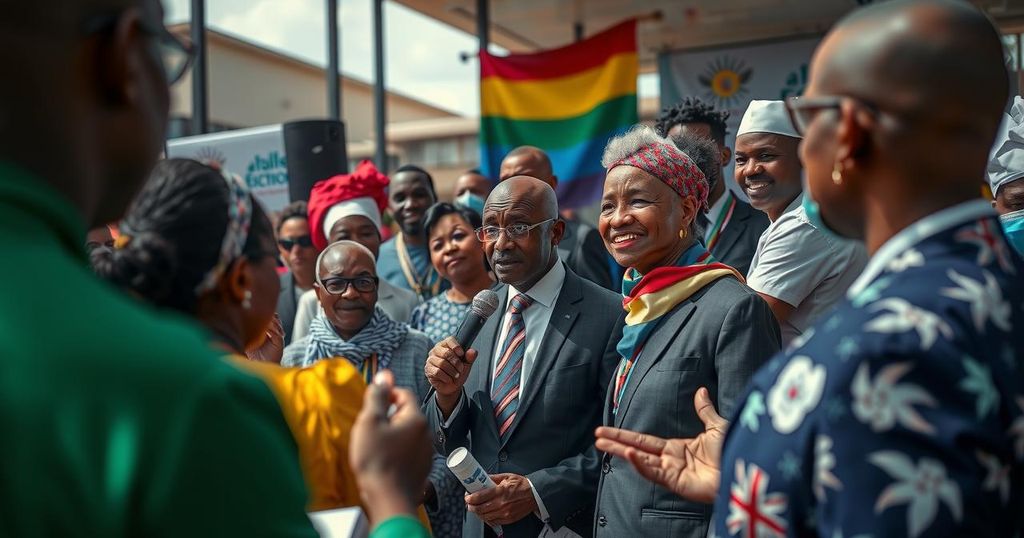Namibia’s Elections: SWAPO Confronts New Challenges Ahead of Tight Race
The Namibian elections reveal a challenging environment for the ruling SWAPO party, which has lost its two-thirds majority and control over urban centers. As multiple parties compete, including significant contenders like the IPC led by Panduleni Itula, the race tightens. The emergence of female presidential candidate Netumbo Nandi-Ndaitwah further complicates the electoral landscape, promising to address key issues such as job creation and women’s rights. Voter sentiment shows potential shifts that could impact SWAPO’s longstanding dominance.
In Namibia, the political landscape has become increasingly competitive as the ruling South West Africa People’s Organisation (SWAPO) faces significant challenges in the ongoing presidential and parliamentary elections. Despite maintaining robust support in the northern regions, SWAPO has experienced a notable decline, losing its two-thirds majority in the 2019 elections and control of key urban areas in subsequent local elections. Namibia’s political opposition, while fragmented and lacking cohesion, still poses a potential threat to SWAPO’s dominance. Political veterans, particularly Netumbo Nandi-Ndaitwah, who aspires to become Namibia’s first female president, have put forward ambitious agendas aimed at addressing unemployment and women’s rights. Current dynamics suggest an uncertain outcome, particularly with the rise of potential challengers such as the Independent Patriots for Change (IPC) led by Panduleni Itula. The atmosphere leading into the election indicates a tightening race, as strategic coalitions and voter sentiment shift significantly among the electorate.
Historically, SWAPO has been the dominant political force in Namibia since the country’s independence in 1990. However, recent years have seen a trend of decreasing support for long-standing ruling parties across southern Africa, driven by various factors including economic discontent and demands for increased accountability. The current electoral environment reflects this shift, presenting opportunities for opposition parties to capitalize on the ruling party’s vulnerabilities and mobilize disenfranchised voters. The presence of assorted parties and ambitious candidates may challenge SWAPO’s traditional hold on power as they seek to address pressing socio-economic issues facing the nation.
The upcoming Namibian elections represent a pivotal moment for both SWAPO and the opposition parties. As political fragmentation continues to challenge the once-unassailable dominance of SWAPO, the potential rise of new political entities emphasizes the need for strategic cohesion among opposition factions. Netumbo Nandi-Ndaitwah’s ambitious presidential candidacy and the IPC’s determination under Panduleni Itula suggest an evolving political dynamic. Nonetheless, it remains to be seen whether these factors will culminate in a substantial shift away from SWAPO’s historical hegemony.
Original Source: www.dw.com




Post Comment